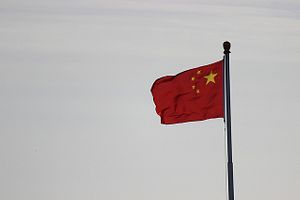Discourse and power are related subjects. According to Iara Lessa’s summary of French social theorist Michel Foucault’s original definition, “discourse” primarily refers to “systems of thoughts composed of ideas, attitudes, courses of action, beliefs, and practices that systematically construct the subjects and the worlds of which they speak.” Therefore, the basic premise of discourse theory claims that the ways we think and talk about a subject influence and reflect the ways we act in relation to that subject. This also applies to the behaviors of a country, such as a rising China in contemporary world system. To control the narrative, then, is the first step to controlling the situation.
In the context of China’s ongoing emergence and its pursuit of more comprehensive involvement in world affairs, power over international discourse has been described as an increasingly important part of its overall soft power, especially as China has to face what it deems “containment, suppression, and attack from the mighty Western discourse.” In Zhang Guozuo’s view, international discourse power specifically refers to the weight and influence of a country’s propositions on the international stage and at various diplomatic occasions. Though a high-profile catchword in Chinese media and academia for over a decade, it was not until the Sixth Plenary Session of the 17th Central Committee meeting in 2011 that the Chinese government officially stressed the importance of strengthening China’s international discourse power.
For any ascending great power, it is quite normal and also necessary to secure and increase its status and influence in international community, and “discourse power” is a desirable means through which to realize multiple economic and political goals. In the still largely Western-dominated world politics and the U.S.-led “rules-based international order,” China believes that its endeavor to upgrade its international discourse power does not necessarily bring a real and direct challenge.
Nevertheless, given the diversity and complexity of world politics, China faces at least five challenges in its campaign for international discourse power, all of which are the major issues that may obstruct what China seeks.
First, there is the notion of an “original sin” inherent in a rising China. This preconceived bias views China’s rise as a heterodoxy that naturally brings uncertainty and instability to the Western-dominated system, and tends to despise the prevailing values in the West. It is in view of this, China must seek, and actually has been seeking, more commonalities, for example by providing more international public goods, in its international activities. For China, the ultimate truth may disprove the “original sin” theory.
Second, there is the emphasis on the “rules-based” system. The United States has repeatedly accused China of being a bad actor, for example, in respect to the East and South China Seas disputes, by restating the importance of “rules-based international order.” Of course, this order was built under the absolute and supreme leadership of the United States after World War II. The fact is that the currently prevailing rule-based order has been very exclusive and dominated by the U.S. values and beliefs. This exclusiveness is exactly what China should be trying to rebut in its international discourse campaign, but it will be an uphill battle.
Third, there is the phenomenon I have called “missing the forest for the trees.” Although China has made great achievements in many socioeconomic aspects, reports in Western media sometimes still pinpoint individual stories and intentionally enlarge them to comment on China as a country. This is particularly true with regards to contradictory views on human right issues between the West and China. When it comes to human rights discourse, the West views and values individual stories, sometimes for political considerations, while China so far has been giving much attention to its grand national progress and achievements, shown in reports and numbers. The different narrative strategies pose an obstacle for China to promote its viewpoint on the world stage.
Fourth, there is the challenge of “the small bullying the big.” In world politics, a big state may bully small ones by taking advantage of its greater size and capability. But the reverse can also be true — small states taking advantage of their relative weakness because a reaction from the big power would spark international condemnation. For example, in the South China Sea, several smaller parties in the disputes have incrementally solidified their occupations of disputed islands and rocks, while China remained relatively more self-restrained. As China seeks to continue its rise, complex reactions from not only major powers but also smaller neighbors should on close to the top of its diplomatic agenda.
Last but not least, there is the danger of too much praise. Overconfidence could obstruct China’s true and clear vision of its own status and image, particularly at a time when the United States is believed to be relatively declining and may start to “retreat,” at least partially, from the global arena where it used to hold unchallenged leadership. The truth is that the United States still seeks to secure its leadership, though slightly different strategies and tactics might be applied going forward. China should clearly understand the relationship between its rising capabilities and the proper responsibilities as a still ascending great power.

































